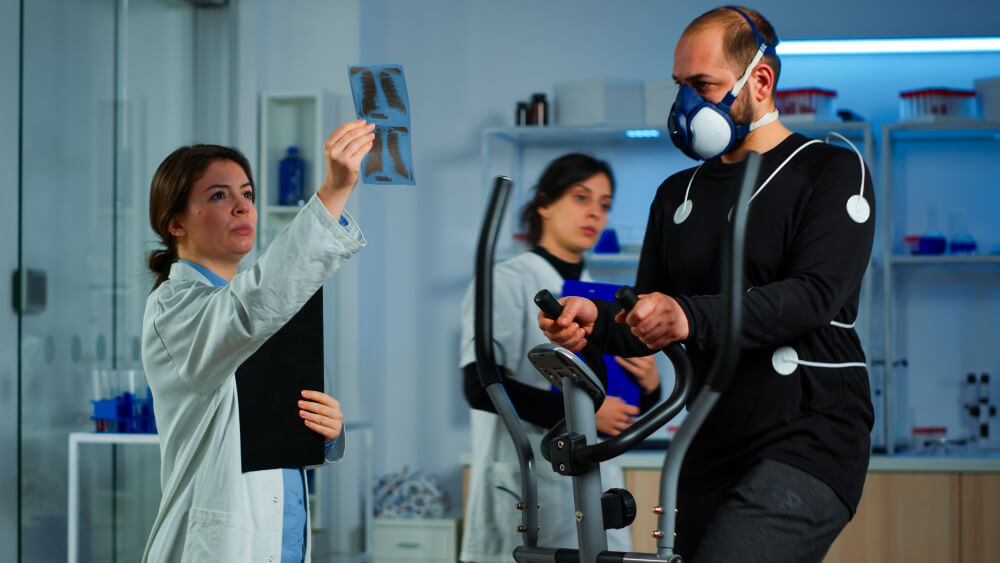Unleashing Your Potential: Sports Medicine & Nutrition – A Guide for Athletes
Athletes dedicate countless hours to honing their skills and pushing their bodies to the limit. To achieve peak performance and minimize the risk of injury, a two-pronged approach is crucial: sports medicine and sports nutrition. This comprehensive guide delves into both aspects, equipping you with the knowledge to optimize your training, prevent injuries, and recover faster.
Sports Medicine: Your Partner in Peak Performance and Injury Prevention
Sports medicine is a specialized field that focuses on the medical needs of athletes. From injury prevention to diagnosis, treatment, and rehabilitation, sports medicine professionals work collaboratively with athletes to ensure optimal health and performance.
Injury Prevention Strategies
Pre-Participation Evaluations: Scheduling a pre-participation evaluation (PPE) with a sports medicine physician is an essential first step. This comprehensive assessment identifies any underlying conditions, muscle imbalances, or previous injuries that could increase your risk of future problems.
Proper Warm-Up and Cool-Down: Never underestimate the importance of a dynamic warm-up to prepare your body for exertion. Likewise, a dedicated cool-down routine helps with muscle recovery and reduces post-exercise soreness.
Strength Training and Conditioning: Building strength and endurance through targeted training programs helps stabilize joints and improve muscle function, reducing the risk of overuse injuries.
Proper Technique and Equipment: Ensure you master the proper technique for your sport to minimize unnecessary stress on joints. Utilizing the right equipment, such as properly fitted shoes, also plays a crucial role in injury prevention.
Adequate Rest and Recovery: Give your body the time it needs to rebuild and repair itself. Regular rest days and sufficient sleep are vital for optimal recovery and preventing burnout.
Diagnosis and Treatment of Sports Injuries
Despite the best preventive measures, injuries can still occur. Sports medicine professionals possess the expertise to diagnose the nature and severity of your injury.
- Diagnostic Techniques: They may employ various techniques like X-rays, MRIs, ultrasounds, and physical examinations to pinpoint the exact problem.
- Treatment Options: Based on the diagnosis, a personalized treatment plan is created. This may involve:
- RICE protocol (Rest, Ice, Compression, Elevation): A cornerstone of early injury management to reduce inflammation and swelling.
- Physical therapy: Rehabilitation exercises strengthen muscles, improve flexibility, and restore full range of motion.
- Medication: Anti-inflammatory medications or pain relievers may be prescribed to manage pain and inflammation.
- Surgery: In severe cases, surgery may be necessary to repair damaged ligaments, tendons, or fractures.
Sports Nutrition: Fueling Your Body for Victory
Nutrition is the cornerstone of athletic performance. Just as a high-performance car needs the right fuel, your body thrives on a well-balanced diet tailored to your specific needs.
Macronutrients: Building Blocks for Performance
Carbohydrates: The primary source of energy for your muscles. Choose complex carbs like whole grains, fruits, and vegetables for sustained energy release.
Protein: Essential for building and repairing muscle tissue. Aim for a moderate intake of protein throughout the day, including lean meats, fish, eggs, and dairy products.
Fats: Provide a slow-burning energy source and support hormone production. Choose healthy fats found in avocados, nuts, seeds, and olive oil.
Micronutrients: Powering Every Process
Vitamins and Minerals: Play a vital role in various bodily functions. Include fruits, vegetables, and whole grains in your diet, as these are rich sources of essential micronutrients.
Hydration: Staying adequately hydrated is crucial for optimal performance and recovery. Consume water regularly throughout the day, especially before, during, and after exercise.
Pre-Workout, During Workout, and Post-Workout Nutrition
Pre-workout: Aim for a meal rich in complex carbs and a moderate amount of protein 2-3 hours before exercise. Examples include whole-wheat toast with peanut butter or oatmeal with berries.
During Workout: For prolonged activities, consume fluids and simple carbs like sports drinks or energy gels to maintain energy levels.
Post-workout: Within 30-60 minutes after exercise, consume a meal high in both carbs and protein to replenish glycogen stores and promote muscle repair. Options include lean meat with vegetables and brown rice or a protein smoothie with fruits and Greek yogurt.
Personalized Sports Nutrition Plans
While the general guidelines above provide a foundation, your specific needs depend on factors like your sport, training intensity, and body composition. Consulting a registered dietitian specializing in sports nutrition can help you create a personalized plan that optimizes your performance and recovery.
Additional Considerations:
- Supplements: Sports supplements can be beneficial in specific situations, but they should not replace a balanced diet. Consult a sports medicine professional or registered dietitian before incorporating any supplements into your routine.
- Dietary Restrictions: Athletes with dietary restrictions, such as vegetarians, vegans, or those with allergies, can still achieve optimal nutrition with proper planning. A registered dietitian can help create a well-rounded plan that meets all your nutritional needs.
- Mental Performance: Nutrition plays a crucial role in mental clarity and focus. Including brain-boosting foods like fatty fish, nuts, and whole grains in your diet can enhance your cognitive performance during training and competition.
- Timing is Key: Strategically timing your meals and snacks around your training schedule helps optimize nutrient absorption and energy availability.
- Travel and Competition: Traveling for competitions can disrupt your dietary routine. Plan ahead and pack healthy snacks. Research restaurants that offer nutritious options at your destination.
- Mindful Eating: Pay attention to your body’s hunger and fullness cues. Eat slowly and savor your food to avoid overeating.
Conclusion: A Winning Combination
Sports medicine and sports nutrition work hand-in-hand to empower athletes of all levels to achieve their full potential. By implementing the strategies outlined in this guide, you can:
- Optimize your training: Proper nutrition fuels your body for peak performance, while injury prevention strategies minimize setbacks.
- Reduce your risk of injury: Sports medicine professionals help identify vulnerabilities and promote safe training practices.
- Recover faster: A personalized treatment plan and proper post-workout nutrition accelerate recovery and get you back in the game quicker.
- Boost your mental focus: Strategic nutrition choices enhance your cognitive performance, allowing you to train and compete at your best.
Remember, achieving peak performance is a journey, not a destination. Embrace the principles of sports medicine and sports nutrition, and watch your athletic journey unfold with confidence and success.


